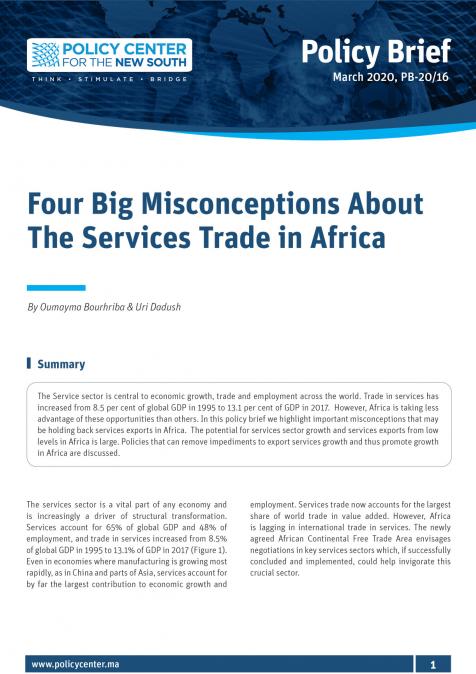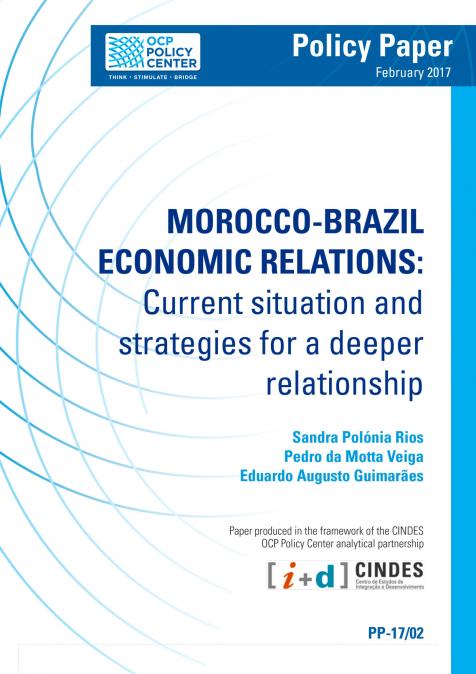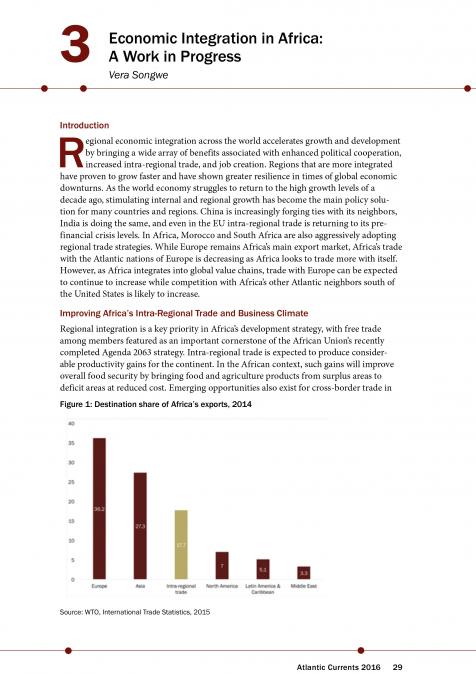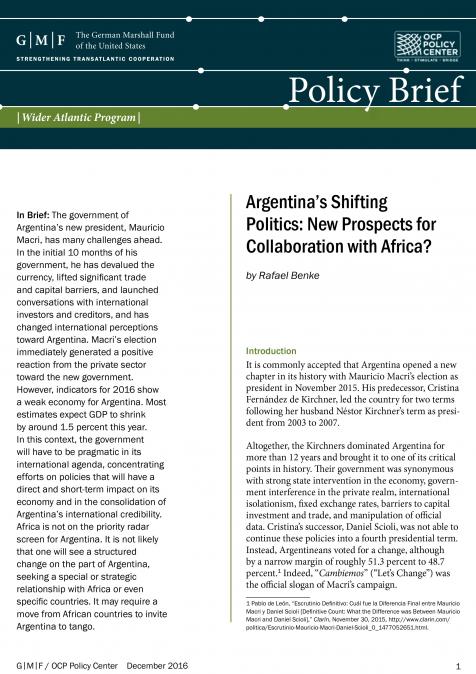Publications /
Policy Brief
Policy Brief
Four Big Misconceptions About The Services Trade in Africa
March 20, 2020
The Service sector is central to economic growth, trade and employment across the world. Trade in services has increased from 8.5 per cent of global GDP in 1995 to 13.1 per cent of GDP in 2017. However, Africa is taking less advantage of these opportunities than others. In this policy brief we highlight important misconceptions that may be holding back services exports in Africa. The potential for services sector growth and services exports from low levels in Africa is large. Policies that can remove impediments to export services growth and thus promote growth in Africa are discussed.










